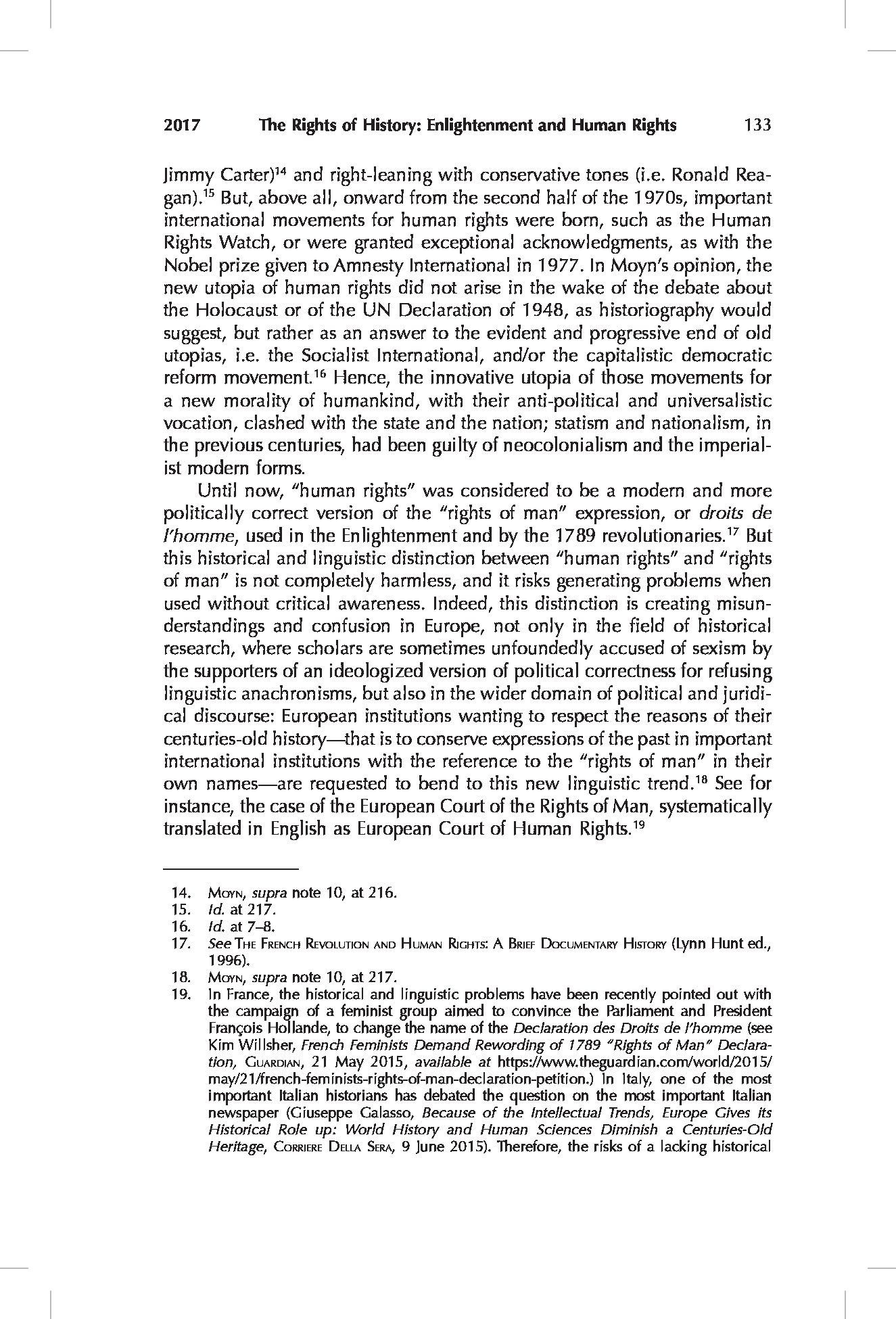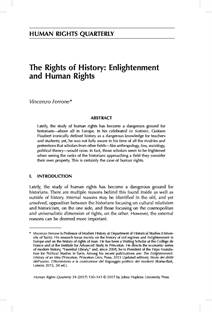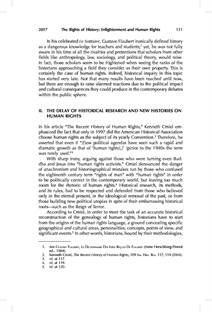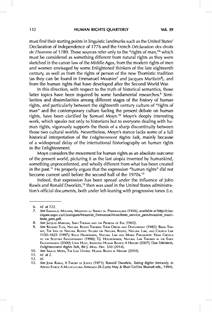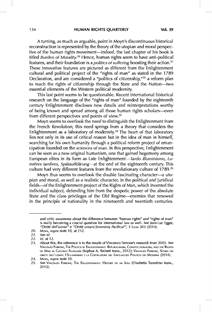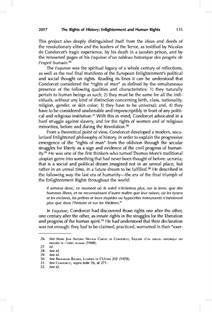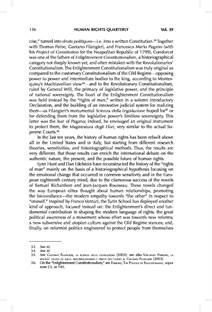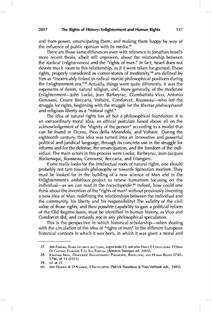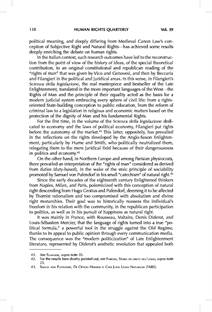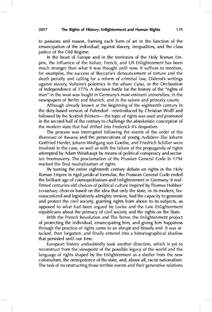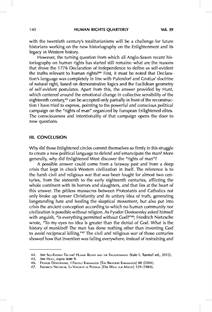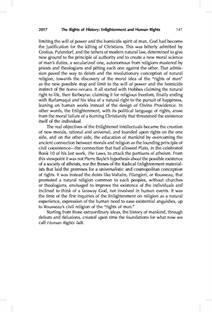2017
The Rights of History: Enlightenment and Human Rights
133
14
Jimmy Carter) and right-leaning with conservative tones (i.e. Ronald Rea-
15
gan). But, above all, onward from the second half of the 1970s, important
international movements for human rights were born, such as the Human
Rights Watch, or were granted exceptional acknowledgments, as with the
Nobel prize given to Amnesty International in 1977. In Moyn’s opinion, the
new utopia of human rights did not arise in the wake of the debate about
the Holocaust or of the UN Declaration of 1948, as historiography would
suggest, but rather as an answer to the evident and progressive end of old
utopias, i.e. the Socialist International, and/or the capitalistic democratic
16
reform movement. Hence, the innovative utopia of those movements for
a new morality of humankind, with their anti-political and universalistic
vocation, clashed with the state and the nation; statism and nationalism, in
the previous centuries, had been guilty of neocolonialism and the imperial-
ist modern forms.
Until now, “human rights” was considered to be a modern and more
politically correct version of the “rights of man” expression, or droits de
17
l’homme, used in the Enlightenment and by the 1789 revolutionaries. But
this historical and linguistic distinction between “human rights” and “rights
of man” is not completely harmless, and it risks generating problems when
used without critical awareness. Indeed, this distinction is creating misun-
derstandings and confusion in Europe, not only in the field of historical
research, where scholars are sometimes unfoundedly accused of sexism by
the supporters of an ideologized version of political correctness for refusing
linguistic anachronisms, but also in the wider domain of political and juridi-
cal discourse: European institutions wanting to respect the reasons of their
centuries-old history—that is to conserve expressions of the past in important
international institutions with the reference to the “rights of man” in their
See for
own names—are requested to bend to this new linguistic trend.
instance, the case of the European Court of the Rights of Man, systematically
19
translated in English as European Court of Human Rights.
18
14. moyn, supra note 10, at 216.
15. Id. at 217.
16. Id. at 7–8.
17. See tHe FrencH revolution anD Human riGHts: a brieF Documentary History (Lynn Hunt ed.,
1996).
18. moyn, supra note 10, at 217.
19. In France, the historical and linguistic problems have been recently pointed out with
the campaign of a feminist group aimed to convince the Parliament and President
François Hollande, to change the name of the Declaration des Droits de l’homme (see
Kim Willsher, French Feminists Demand Rewording of 1789 “Rights of Man” Declara-
tion, GuarDian, 21 May 2015, available at https://www.theguardian.com/world/2015/
may/21/french-feminists-rights-of-man-declaration-petition.) In Italy, one of the most
important Italian historians has debated the question on the most important Italian
newspaper (Giuseppe Galasso, Because of the Intellectual Trends, Europe Gives its
Historical Role up: World History and Human Sciences Diminish a Centuries-Old
Heritage, corriere Della sera, 9 June 2015). Therefore, the risks of a lacking historical
Dettagli
- Page N°:4
- Publication:
- Author:Vincenzo Ferrone

